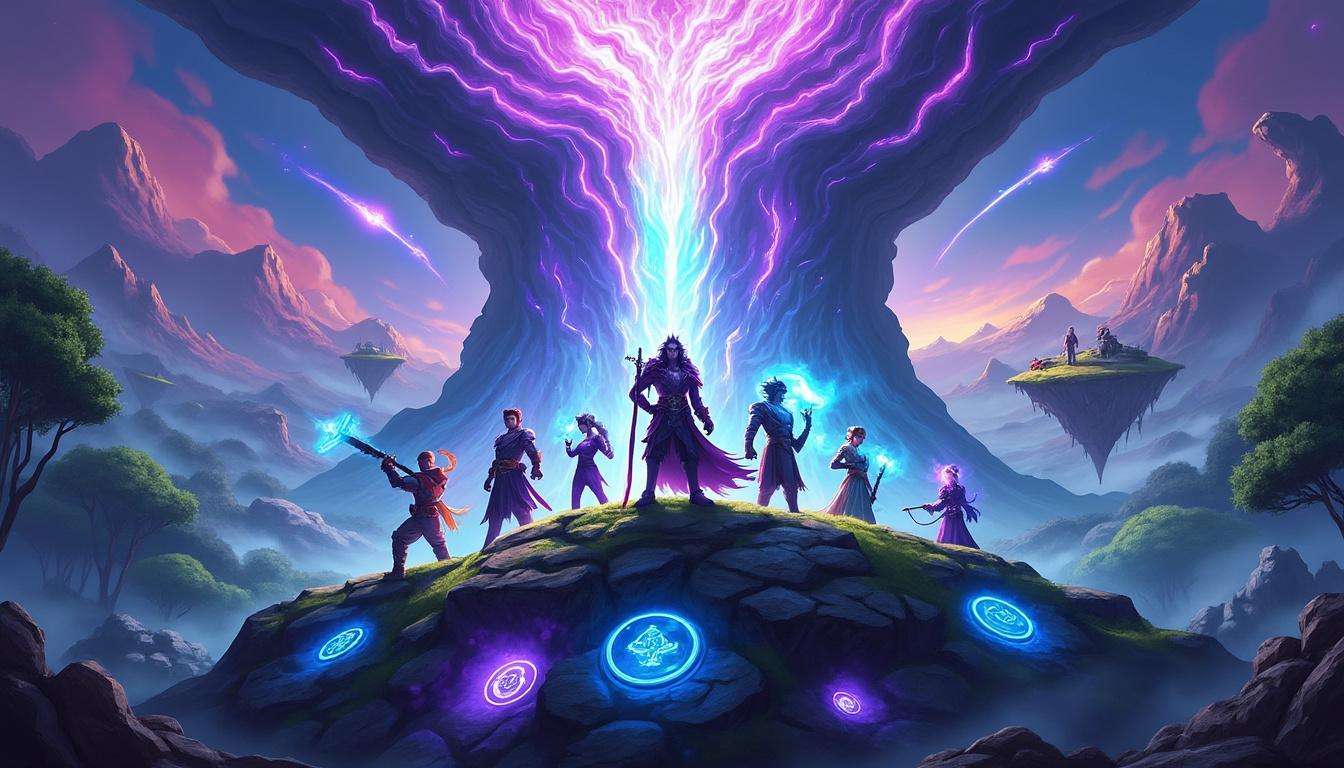Riot Games’ latest venture into the trading card game (TCG) scene, Riftbound, is poised to make a significant impact with its English release slated for October. Following an initial launch in China this August, this potential new esport and collectible card game takes the rich characters and lore from League of Legends and transposes them into a strategic TCG format that challenges both new and veteran players. Riftbound dives deep into the Runeterra universe, bringing tactical depth to the tabletop while connecting fans to beloved champions and iconic skins such as those from the Hextech and Takeover lines.
Riftbound English Release Highlights October Launch
Riot Games officially announced that the English version of Riftbound will launch worldwide in October, following its debut in China this summer. This phased rollout allows the developer to gather feedback and polish the gameplay experience ahead of the broader international release. Riot’s initiative signals its intent to expand the esports ecosystem beyond traditional League of Legends gameplay, leveraging the intricate storytelling and characters of Runeterra to engage a new segment of competitive players.
- Initial release in China: August 2025
- English launch worldwide: October 2025
- Developer: Riot Games
- Publisher: UVS Games
- Format: Physical trading card game focusing on strategic deck building
This new title emphasizes strong tactical decisions around champion cards, including fan-favorite skins inspired by Hextech technology and the Takeover series, offering players a fresh layer of strategy and collection dynamics. Riftbound represents a notable evolution in the competitive card game landscape, reshaping expectations with its dynamic gameplay and ties to the League of Legends franchise.
Influence of League of Legends Lore on Riftbound TCG
Riftbound heavily integrates the lore of the League of Legends universe, Runeterra. This connection enriches the TCG experience by allowing players to engage with the same champions they have followed in esports and digital gameplay. For example, cards feature champions from diverse regions, including Demacia, Noxus, and Piltover, each with unique abilities reflective of their in-game roles and storylines.
- Runeterra regions inspire champion abilities and card synergies
- Use of iconic skins adds visual and tactical diversity
- Strategic focus on champion combos and deck customization
- Riftbound advances Riot’s esports reach through physical card competition
This approach bridges the gap between digital esports fans and tabletop players, expanding the League of Legends community into new but familiar competitive formats.
Riftbound’s Tactical Depth and Deck Building Challenges
Riftbound distinguishes itself with a focus on strategic deck building and tactical play that appeals to both casual and competitive players. Riot Games designed the card mechanics to mirror the strategic complexities found in their popular MOBA title, blending champion interactions with innovative card effects and resource management.
- Decks built around specific champion synergies and Hextech upgrades
- Utilizes a dynamic energy system to activate champion abilities
- Incorporates takeover-themed cards to shift board control
- Players must balance offense, defense, and resource economy
Such careful design encourages deep strategic thinking and fosters an engaging esport environment where skillful decision-making can tip the balance between victory and defeat. This depth is a strategic evolution from classic card games and aligns closely with Riot’s esports ambitions.
Community Impact and Riot Games’ Engagement
Alongside its gameplay innovations, Riftbound marks an important step for Riot Games as they respond to community desires for new ways to experience the League of Legends universe. The developer has acknowledged fan concerns and integrated feedback to refine Riftbound’s mechanics, ensuring balance and accessibility. This iterative process reflects Riot’s broader strategy to expand their gaming ecosystem while respecting the legacy of existing titles like Legends of Runeterra.
- Active community feedback integration during early releases
- Support for esports and tournament structures planned for post-launch
- Collaboration with the community around skins and cards customization
- Strategic marketing leveraging existing League of Legends fanbase
This synergy benefits both new and veteran players, fostering a diverse player base eager to explore this new competitive environment.
Future Prospects of Riftbound in the Esports Scene
With its English release in October, Riftbound sets the stage for new esports tournaments and competitive play, expanding the League of Legends competitive scene into the physical card game realm. Riot Games’ commitment to the title suggests ongoing support, including new expansions and collaborations influenced by Runeterra’s evolving lore and champion rosters.
- Planned seasonal expansions adding champions and skins
- Cross-promotion with digital esports events
- Potential partnerships with esports organizations
- Development of official competitive leagues worldwide
Riftbound’s innovative blend of lore-rich content, strategic gameplay, and esports potential is set to make it a cornerstone in the evolving gaming landscape.
For further insights into Riftbound’s gameplay, ecosystem, and community reception, explore deep analysis and updates at Iron to Radiant’s Riftbound coverage. Discover how Riot Games is transforming the TCG experience with strategic design innovations and engage with detailed previews of new cards on Iron to Radiant. Stay updated on community engagement and Riot’s esports vision through deep commentaries and compare Riftbound’s competitive edge against other TCGs in the market.

